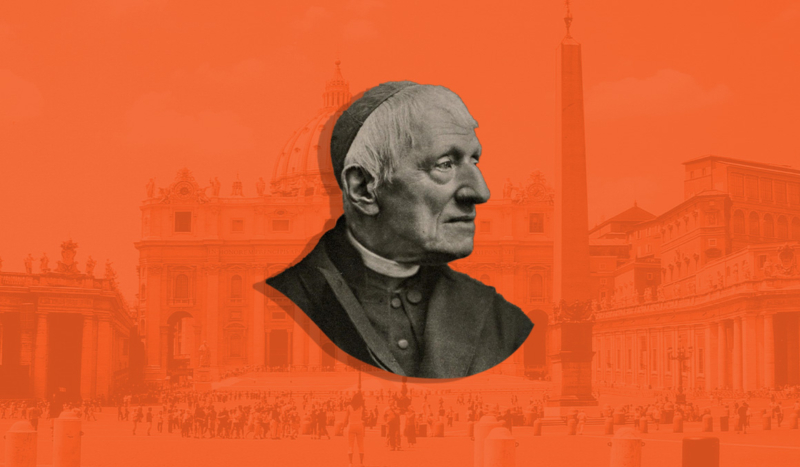
CV NEWS FEED // At their annual meeting in Baltimore this week the United States Conference of Catholic Bishops voted overwhelmingly in support of making St. John Henry Newman a Doctor of the Church.
Bishop Robert Barron strongly supported the motion, saying it could be a “marvelous teaching moment” for the Church.
“Given the breadth and depth of Newman’s mind, he’s been legitimately claimed by both the liberal side of the spectrum and the conservative side,” Barron observed. “I think it might help to heal some of the divisions in our Church.”
The bishops conference of England and Wales initially proposed the idea and the bishops of Ireland and Scotland have agreed to support it.
Upon the request of the Archbishop of Westminster, Cardinal Vincent Nichols, the U.S. bishops will send a letter to the Holy Father supporting England and Wales’ proposal that Pope Francis make Newman a Doctor of the Church.
Bishop Daniel E. Flores, Chairman of the Committee on Doctrine, brought forth the proposal. Only two U.S. bishops voted against the motion, while 240 bishops voted in favor.
Archbishop Borys Gudziak, of the Ukrainian Catholic Archeparchy of Philadelphia, noted that Newman is greatly respected among Eastern Christians:
He would be a very modern doctor. He was facing issues that are still in development. He presaged many of them, and to many of them he offered not only an intellectual response but also a personal witness…The quality of his prose, the beauty of Cardinal Newman is something we really need.
Newman, an English theologian, philosopher, and historian, was an Anglican priest until he converted to Catholicism, became a Catholic priest, and was ultimately made a cardinal. Newman died in 1890 and was canonized on October 13, 2019.
“As a former campus minister at the University of Maryland, so many of our campus ministries are named after Cardinal Newman, and I think it would be a wonderful endorsement of that fundamental ministry within our Church here and our hope for the future,” said Bishop William D. Byrne of Springfield, MA.
While the bishops overwhelmingly supported the proposition, Cardinal Daniel N. DiNardo, Archbishop of Galveston-Houston, raised a question about the speed of the process.
“Should he be named a Doctor of the Church so quickly after he was named a Saint?” he asked. “I don’t want what happened to Irenaeus—it took 1900 years—but that there would be some modicum of time for his writings to be further elucidated by the Church before naming him a Doctor of the Church.”
For other bishops, it was an easy choice.
As Cardinal Sean P. O’Malley of Boston said, “I think it’s sort of a no-brainer that we would be in favor of this.”
